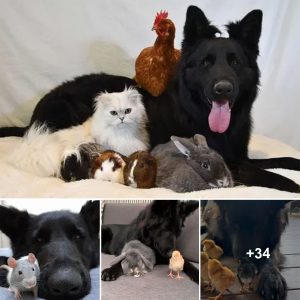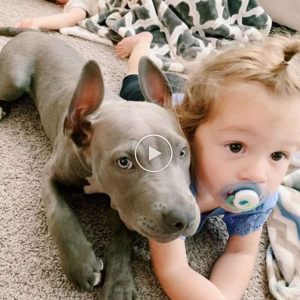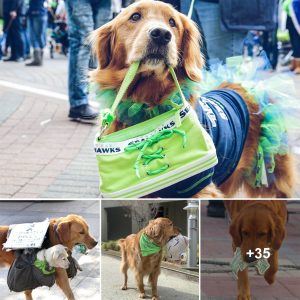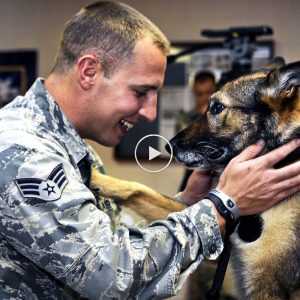In the vast tapestry of maternal instincts, a heartwarming story from New South Wales, Australia, showcases the unwavering dedication of a feline mother to protect her offspring. This tale exemplifies the incredible lengths a mother, whether human or animal, can go to ensure the safety of her little ones.
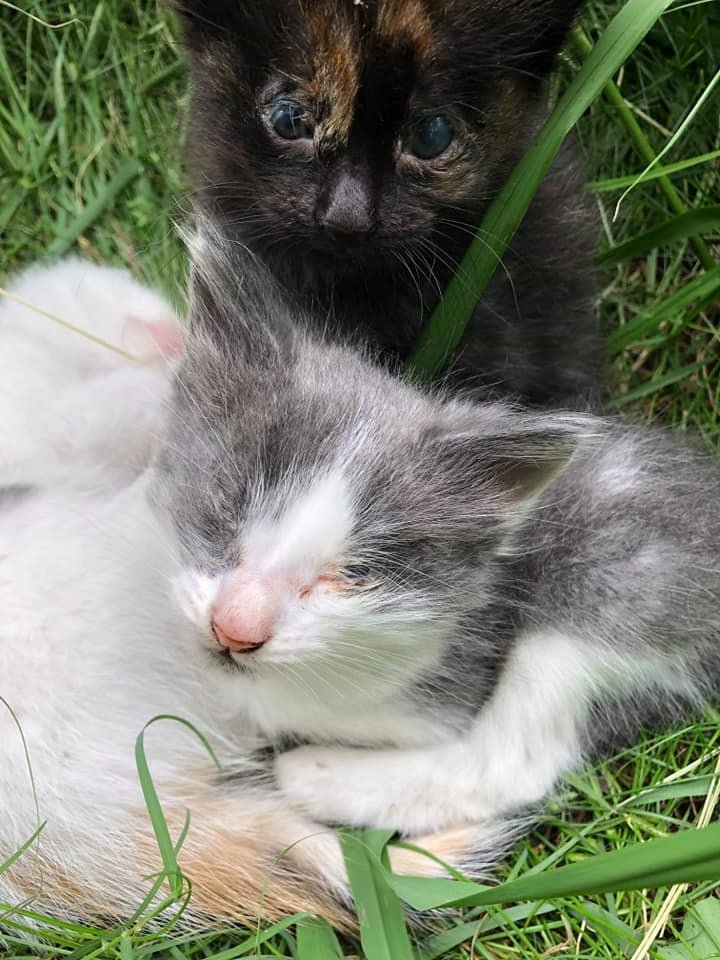
A concerned passerby discovered a feline family, comprising a mother and her three kittens, by the side of the road. Recognizing the need for immediate assistance, the observer contacted a rescue group in Terrey Hills known as CatRescue 901. Upon their arrival, the mother cat walked up to the rescuers, guiding them to the exact location of her three vulnerable kittens. Despite being skinny and showing signs of hardship, she had done everything within her power to keep her precious ones fed and secure.
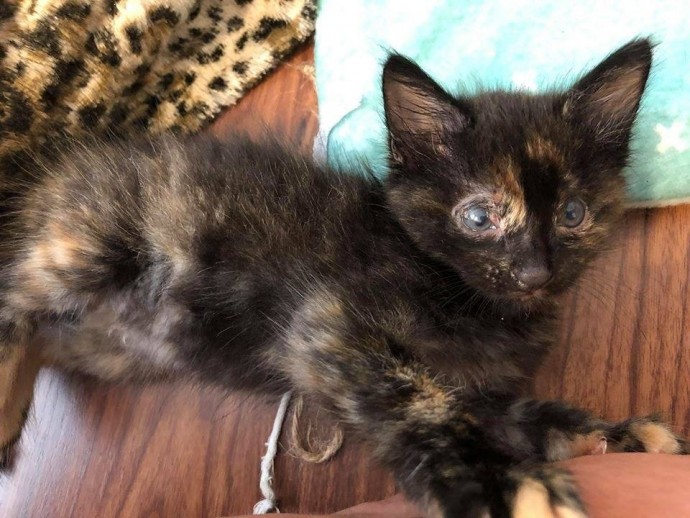
Upon closer inspection, it became evident that the four cats were in dire need of medical care. Starving and in poor condition, the kittens were diagnosed with eyelid agenesis, a congenital condition that left them without eyelids and could lead to blindness if left untreated. CatRescue 901 swiftly took charge, providing them with nourishment, baths, and comfortable resting spaces. Medications were administered, and the feline mother, named Elodie, showed signs of improvement, especially after being spayed.
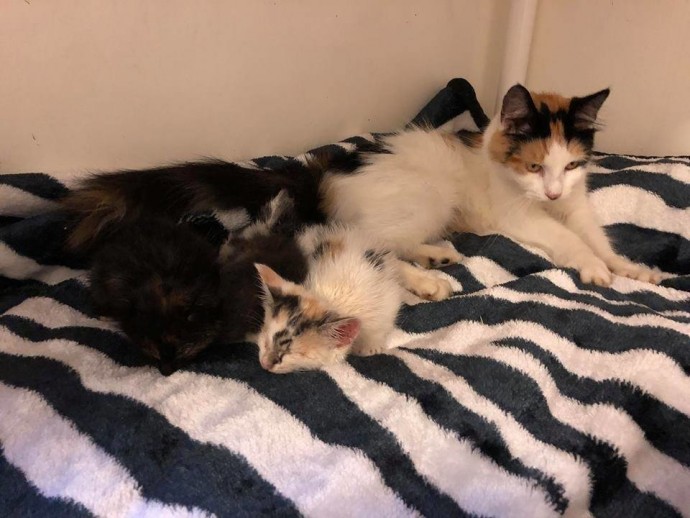
Jenny, the founder of the rescue group, emphasized the significance of timing in their intervention. “Not many could cope with eyelid agenesis surgery because it’s too expensive,” she shared with lovemeow. The road to recovery stretches ahead, but what matters most is that their devoted mother, Elodie, is confident that her kittens are now in capable hands.
Meet Elodie, a feline mom who tirelessly tried to ensure her kittens were fed and safe but was visibly struggling.
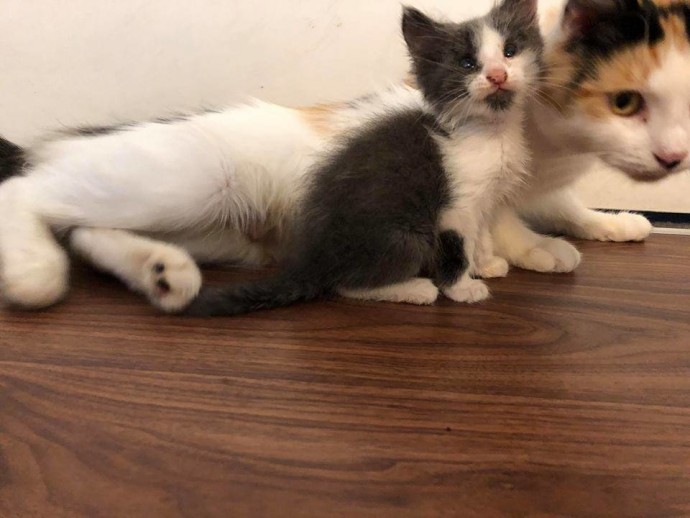
When a stranger contacted CatRescue 901, she walked up to her heroes and led them to where her kittens were.
Initially appearing friendly and harmless, a closer look revealed they needed immediate medical attention.
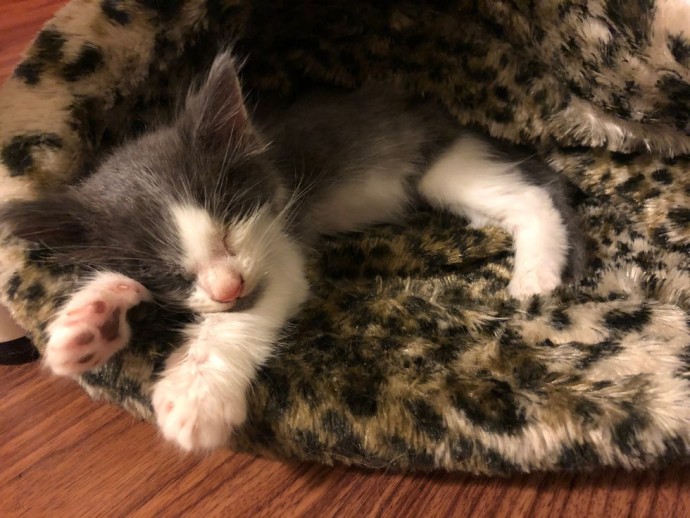
All four suffered from a condition called eyelid agenesis, threatening their eyesight if not promptly treated.
Once brought to the shelter, they received baths, proper nourishment, and a chance to rest.
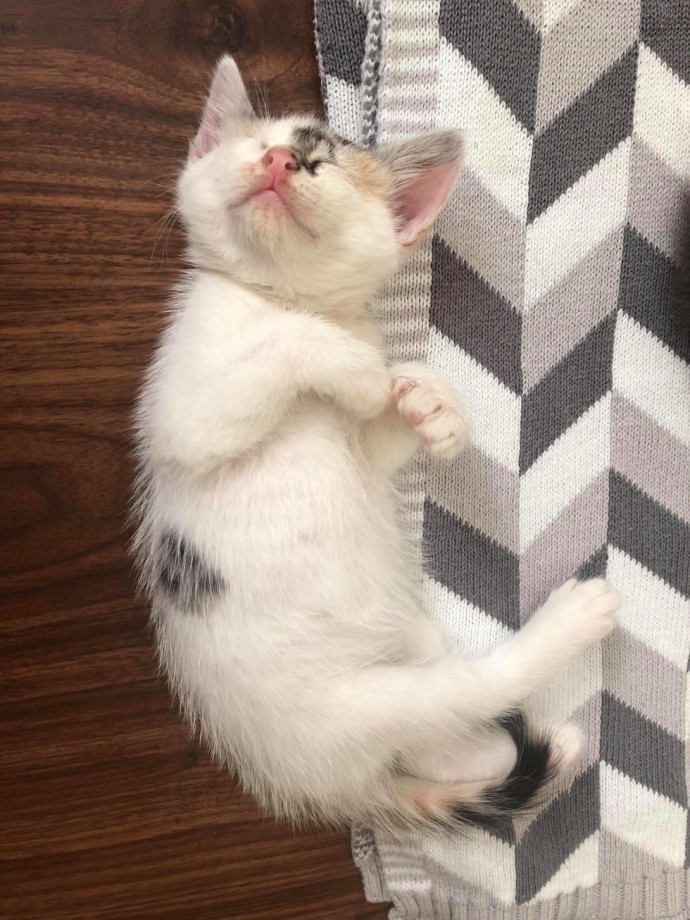
Their fortunate landing at the right place and time was emphasized, as not many rescue groups are equipped to handle eyelid agenesis.
The road to recovery is still long, but they are finally safe, and a dedicated team of compassionate individuals is now caring for them.

